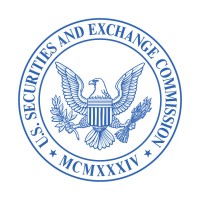
U.S. Securities and Exchange Commission Company Cyber Security Posture
sec.govThe mission of the U.S. Securities and Exchange Commission (SEC) is to protect investors, maintain fair, orderly, and efficient markets, and facilitate capital formation. The SEC holds primary responsibility for enforcing the federal securities laws and regulating the securities industry, the nation's stock and options exchanges, and other electronic securities markets in the United States. In addition to the Securities Exchange Act of 1934 that created it, the SEC enforces the Securities Act of 1933, the Trust Indenture Act of 1939, the Investment Company Act of 1940, the Investment Advisers Act of 1940, the Sarbanes-Oxley Act of 2002 and other statutes. The SEC's five main divisions are: • Corporation Finance • Trading and Markets • Investment Management • Enforcement • Risk and Economic Analysis The SEC is looking for the brightest minds to solve difficult problems and help strengthen our team in order to better serve as the investor's advocate. We are currently seeking qualified applicants for numerous positions. Opportunities are located in the SEC's Washington, D.C. headquarters and in 11 regional offices in the United States. Disclaimer: http://ow.ly/5hB230oHjhr
USEC Company Details
secgov
4806 employees
142329
52
Financial Services
sec.gov
Scan still pending
U.S_2624801
In-progress
Between 800 and 900
This score is AI-generated and less favored by cyber insurers, who prefer the TPRM score.
 USEC Global Score
USEC Global Score.png)

U.S. Securities and Exchange Commission Company Scoring based on AI Models
| Model Name | Date | Description | Current Score Difference | Score |
|---|---|---|---|---|
| AVERAGE-Industry | 03-12-2025 | This score represents the average cybersecurity rating of companies already scanned within the same industry. It provides a benchmark to compare an individual company's security posture against its industry peers. | N/A | Between 800 and 900 |
U.S. Securities and Exchange Commission Company Cyber Security News & History
| Entity | Type | Severity | Impact | Seen | Url ID | Details | View |
|---|---|---|---|---|---|---|---|
| U.S. Securities and Exchange Commission | Breach | 50 | 2 | 09/2017 | USS221111223 | Link | |
Rankiteo Explanation : Attack limited on finance or reputationDescription: The leading U.S. market regulator, the SEC, disclosed a security breach; thieves may have utilised the accessible data for insider trading. Clayton claims that the security breach was the last to be found and that it was caused by a software vulnerability. The SEC stated that it is looking into the security breech, but it withheld information regarding the attack; instead, it simply attested to the fact that the vulnerability used by hackers was swiftly corrected. It is thought that no systemic risk nor unauthorised access to personally identifiable information was caused by the intrusion, nor did it endanger the Commission's operations. | |||||||
U.S. Securities and Exchange Commission Company Subsidiaries

The mission of the U.S. Securities and Exchange Commission (SEC) is to protect investors, maintain fair, orderly, and efficient markets, and facilitate capital formation. The SEC holds primary responsibility for enforcing the federal securities laws and regulating the securities industry, the nation's stock and options exchanges, and other electronic securities markets in the United States. In addition to the Securities Exchange Act of 1934 that created it, the SEC enforces the Securities Act of 1933, the Trust Indenture Act of 1939, the Investment Company Act of 1940, the Investment Advisers Act of 1940, the Sarbanes-Oxley Act of 2002 and other statutes. The SEC's five main divisions are: • Corporation Finance • Trading and Markets • Investment Management • Enforcement • Risk and Economic Analysis The SEC is looking for the brightest minds to solve difficult problems and help strengthen our team in order to better serve as the investor's advocate. We are currently seeking qualified applicants for numerous positions. Opportunities are located in the SEC's Washington, D.C. headquarters and in 11 regional offices in the United States. Disclaimer: http://ow.ly/5hB230oHjhr
Access Data Using Our API

Get company history
.png)
USEC Cyber Security News
The SEC Pinned Its Hack on a Few Hapless Day Traders. The Full Story Is Far More Troubling
When a notorious gang of Ukrainian cybercriminals hit a crucial database, the regulator quickly downplayed the breach.
Banking groups urge SEC to rescind Biden-era cybersecurity rule
A coalition of banking industry groups has asked the Securities and Exchange Commission to rescind a controversial Biden-era cybersecurity ...
SEC revamps cyber and crypto enforcement unit under Trump administration
The Securities and Exchange Commission on Thursday unveiled a revamped anti-fraud unit to protect retail investors in emerging technologies, ...
Banks Want SEC to Rescind Cyberattack Disclosure Requirements
American banking groups want the Securities and Exchange Commission (SEC) to revoke its cybersecurity incident disclosure requirements.
SEC cybersecurity disclosure rules, with checklist
The SEC requires public companies to disclose certain information about cybersecurity incidents and practices. Learn more.
US Financial Trade Associations Urge SEC to Rescind Cyber Incident Disclosure Rule
A central concern is the timing of the required disclosures. Registrants have been forced to disclose cybersecurity incidents “even if [an ...
The SEC’s 2023 final rules on cybersecurity disclosures
The SEC has introduced new rules that will inform investors about cybersecurity attacks on public companies and offer insights about how companies manage cyber ...
Wave of cyber-related SEC enforcement activity may signal increased scrutiny
The Securities and Exchange Commission (SEC) announced four settled enforcement orders against issuers concerning materially misleading disclosures related to ...
US banks don't want to have to reveal when they've been hacked
US banks are pushing back against a cyberattack disclosure rule · The banks say its adds complexity and strain to their systems · Banks especially ...

USEC Similar Companies

MassMutual
Living mutual has always been at the core of our human existence, and it's the principle that's guided us since our founding in 1851. It's not a concept we invented, but one we champion for the simple reason that people take it for granted today. While the world would have us strive for independenc

Postal Savings Bank of China Co., Ltd.
Postal Savings Bank of China Co., Ltd. also known as PSBC is a commercial retail bank founded in 2007 and headquartered in Beijing. It provides basic financial services, especially to small and medium enterprises, rural[1] and low income customers. As of December 31, 2017, PSBC has 39,798[2] branche

LPL Financial
LPL Financial is a leader in the retail financial advice market and the nation’s largest independent broker/dealer*. We serve independent financial advisors and financial institutions, providing them with the technology, research, clearing and compliance services, and practice management programs th

Barclays Investment Bank
Barclays Investment Bank deploys financial solutions to help our clients with their funding, financing, strategic and risk management needs across sectors, markets and economies. The Investment Bank is comprised of the Investment Banking, International Corporate Banking, Global Markets and Researc

Cholamandalam Investment and Finance Company Limited
Cholamandalam Investment and Finance Company Limited (Chola), founded in 1978 as part of the Murugappa Group, initially focused on equipment financing. Over the years, Chola has transformed into a leading comprehensive financial services provider, offering a wide array of solutions including vehicle

Transamerica
Longer lifespans are changing the way we exist. Instead of the traditional stages of learn, work, and retire, we now have the potential for a more fulfilling, multi-stage life. With this opportunity comes the need to plan for it. We enable financial professionals, brokers, agents, advisors, and empl

Frequently Asked Questions (FAQ) on Cybersecurity Incidents
USEC CyberSecurity History Information
Total Incidents: According to Rankiteo, USEC has faced 1 incidents in the past.
Incident Types: The types of cybersecurity incidents that have occurred include ['Breach'].
Total Financial Loss: The total financial loss from these incidents is estimated to be {total_financial_loss}.
Cybersecurity Posture: The company's overall cybersecurity posture is described as The mission of the U.S. Securities and Exchange Commission (SEC) is to protect investors, maintain fair, orderly, and efficient markets, and facilitate capital formation. The SEC holds primary responsibility for enforcing the federal securities laws and regulating the securities industry, the nation's stock and options exchanges, and other electronic securities markets in the United States. In addition to the Securities Exchange Act of 1934 that created it, the SEC enforces the Securities Act of 1933, the Trust Indenture Act of 1939, the Investment Company Act of 1940, the Investment Advisers Act of 1940, the Sarbanes-Oxley Act of 2002 and other statutes. The SEC's five main divisions are: • Corporation Finance • Trading and Markets • Investment Management • Enforcement • Risk and Economic Analysis The SEC is looking for the brightest minds to solve difficult problems and help strengthen our team in order to better serve as the investor's advocate. We are currently seeking qualified applicants for numerous positions. Opportunities are located in the SEC's Washington, D.C. headquarters and in 11 regional offices in the United States. Disclaimer: http://ow.ly/5hB230oHjhr.
Detection and Response: The company detects and responds to cybersecurity incidents through {description_of_detection_and_response_process}.
Incident Details
Incident 1: Ransomware Attack
Title: {Incident_Title}
Description: {Brief_description_of_the_incident}
Date Detected: {Detection_Date}
Date Publicly Disclosed: {Disclosure_Date}
Date Resolved: {Resolution_Date}
Type: {Type_of_Attack}
Attack Vector: {Attack_Vector}
Vulnerability Exploited: {Vulnerability}
Threat Actor: {Threat_Actor}
Motivation: {Motivation}
Incident 2: Data Breach
Title: {Incident_Title}
Description: {Brief_description_of_the_incident}
Date Detected: {Detection_Date}
Date Publicly Disclosed: {Disclosure_Date}
Date Resolved: {Resolution_Date}
Type: {Type_of_Attack}
Attack Vector: {Attack_Vector}
Vulnerability Exploited: {Vulnerability}
Threat Actor: {Threat_Actor}
Motivation: {Motivation}
Common Attack Types: As of now, the company has not encountered any reported incidents involving common cyberattacks.
Identification of Attack Vectors: The company identifies the attack vectors used in incidents through {description_of_identification_process}.
Impact of the Incidents
Incident 1: Ransomware Attack
Financial Loss: {Financial_Loss}
Data Compromised: {Data_Compromised}
Systems Affected: {Systems_Affected}
Downtime: {Downtime}
Operational Impact: {Operational_Impact}
Conversion Rate Impact: {Conversion_Rate_Impact}
Revenue Loss: {Revenue_Loss}
Customer Complaints: {Customer_Complaints}
Brand Reputation Impact: {Brand_Reputation_Impact}
Legal Liabilities: {Legal_Liabilities}
Identity Theft Risk: {Identity_Theft_Risk}
Payment Information Risk: {Payment_Information_Risk}
Incident 2: Data Breach
Financial Loss: {Financial_Loss}
Data Compromised: {Data_Compromised}
Systems Affected: {Systems_Affected}
Downtime: {Downtime}
Operational Impact: {Operational_Impact}
Conversion Rate Impact: {Conversion_Rate_Impact}
Revenue Loss: {Revenue_Loss}
Customer Complaints: {Customer_Complaints}
Brand Reputation Impact: {Brand_Reputation_Impact}
Legal Liabilities: {Legal_Liabilities}
Identity Theft Risk: {Identity_Theft_Risk}
Payment Information Risk: {Payment_Information_Risk}
Average Financial Loss: The average financial loss per incident is {average_financial_loss}.
Commonly Compromised Data Types: The types of data most commonly compromised in incidents are {list_of_commonly_compromised_data_types}.
Incident 1: Ransomware Attack
Entity Name: {Entity_Name}
Entity Type: {Entity_Type}
Industry: {Industry}
Location: {Location}
Size: {Size}
Customers Affected: {Customers_Affected}
Incident 2: Data Breach
Entity Name: {Entity_Name}
Entity Type: {Entity_Type}
Industry: {Industry}
Location: {Location}
Size: {Size}
Customers Affected: {Customers_Affected}
Response to the Incidents
Incident 1: Ransomware Attack
Incident Response Plan Activated: {Yes/No}
Third Party Assistance: {Yes/No}
Law Enforcement Notified: {Yes/No}
Containment Measures: {Containment_Measures}
Remediation Measures: {Remediation_Measures}
Recovery Measures: {Recovery_Measures}
Communication Strategy: {Communication_Strategy}
Adaptive Behavioral WAF: {Adaptive_Behavioral_WAF}
On-Demand Scrubbing Services: {On_Demand_Scrubbing_Services}
Network Segmentation: {Network_Segmentation}
Enhanced Monitoring: {Enhanced_Monitoring}
Incident 2: Data Breach
Incident Response Plan Activated: {Yes/No}
Third Party Assistance: {Yes/No}
Law Enforcement Notified: {Yes/No}
Containment Measures: {Containment_Measures}
Remediation Measures: {Remediation_Measures}
Recovery Measures: {Recovery_Measures}
Communication Strategy: {Communication_Strategy}
Adaptive Behavioral WAF: {Adaptive_Behavioral_WAF}
On-Demand Scrubbing Services: {On_Demand_Scrubbing_Services}
Network Segmentation: {Network_Segmentation}
Enhanced Monitoring: {Enhanced_Monitoring}
Incident Response Plan: The company's incident response plan is described as {description_of_incident_response_plan}.
Third-Party Assistance: The company involves third-party assistance in incident response through {description_of_third_party_involvement}.
Data Breach Information
Incident 2: Data Breach
Type of Data Compromised: {Type_of_Data}
Number of Records Exposed: {Number_of_Records}
Sensitivity of Data: {Sensitivity_of_Data}
Data Exfiltration: {Yes/No}
Data Encryption: {Yes/No}
File Types Exposed: {File_Types}
Personally Identifiable Information: {Yes/No}
Prevention of Data Exfiltration: The company takes the following measures to prevent data exfiltration: {description_of_prevention_measures}.
Handling of PII Incidents: The company handles incidents involving personally identifiable information (PII) through {description_of_handling_process}.
Ransomware Information
Incident 1: Ransomware Attack
Ransom Demanded: {Ransom_Amount}
Ransom Paid: {Ransom_Paid}
Ransomware Strain: {Ransomware_Strain}
Data Encryption: {Yes/No}
Data Exfiltration: {Yes/No}
Ransom Payment Policy: The company's policy on paying ransoms in ransomware incidents is described as {description_of_ransom_payment_policy}.
Data Recovery from Ransomware: The company recovers data encrypted by ransomware through {description_of_data_recovery_process}.
Regulatory Compliance
Incident 1: Ransomware Attack
Regulations Violated: {Regulations_Violated}
Fines Imposed: {Fines_Imposed}
Legal Actions: {Legal_Actions}
Regulatory Notifications: {Regulatory_Notifications}
Incident 2: Data Breach
Regulations Violated: {Regulations_Violated}
Fines Imposed: {Fines_Imposed}
Legal Actions: {Legal_Actions}
Regulatory Notifications: {Regulatory_Notifications}
Regulatory Frameworks: The company complies with the following regulatory frameworks regarding cybersecurity: {list_of_regulatory_frameworks}.
Ensuring Regulatory Compliance: The company ensures compliance with regulatory requirements through {description_of_compliance_measures}.
Lessons Learned and Recommendations
Incident 1: Ransomware Attack
Lessons Learned: {Lessons_Learned}
Incident 2: Data Breach
Lessons Learned: {Lessons_Learned}
Incident 1: Ransomware Attack
Recommendations: {Recommendations}
Incident 2: Data Breach
Recommendations: {Recommendations}
Key Lessons Learned: The key lessons learned from past incidents are {list_of_key_lessons_learned}.
Implemented Recommendations: The company has implemented the following recommendations to improve cybersecurity: {list_of_implemented_recommendations}.
References
Additional Resources: Stakeholders can find additional resources on cybersecurity best practices at {list_of_additional_resources}.
Investigation Status
Incident 1: Ransomware Attack
Investigation Status: {Investigation_Status}
Incident 2: Data Breach
Investigation Status: {Investigation_Status}
Communication of Investigation Status: The company communicates the status of incident investigations to stakeholders through {description_of_communication_process}.
Stakeholder and Customer Advisories
Incident 1: Ransomware Attack
Stakeholder Advisories: {Stakeholder_Advisories}
Customer Advisories: {Customer_Advisories}
Incident 2: Data Breach
Stakeholder Advisories: {Stakeholder_Advisories}
Customer Advisories: {Customer_Advisories}
Advisories Provided: The company provides the following advisories to stakeholders and customers following an incident: {description_of_advisories_provided}.
Initial Access Broker
Incident 1: Ransomware Attack
Entry Point: {Entry_Point}
Reconnaissance Period: {Reconnaissance_Period}
Backdoors Established: {Backdoors_Established}
High Value Targets: {High_Value_Targets}
Data Sold on Dark Web: {Yes/No}
Incident 2: Data Breach
Entry Point: {Entry_Point}
Reconnaissance Period: {Reconnaissance_Period}
Backdoors Established: {Backdoors_Established}
High Value Targets: {High_Value_Targets}
Data Sold on Dark Web: {Yes/No}
Monitoring and Mitigation of Initial Access Brokers: The company monitors and mitigates the activities of initial access brokers through {description_of_monitoring_and_mitigation_measures}.
Post-Incident Analysis
Incident 1: Ransomware Attack
Root Causes: {Root_Causes}
Corrective Actions: {Corrective_Actions}
Incident 2: Data Breach
Root Causes: {Root_Causes}
Corrective Actions: {Corrective_Actions}
Post-Incident Analysis Process: The company's process for conducting post-incident analysis is described as {description_of_post_incident_analysis_process}.
Corrective Actions Taken: The company has taken the following corrective actions based on post-incident analysis: {list_of_corrective_actions_taken}.
Additional Questions
General Information
Ransom Payment History: The company has {paid/not_paid} ransoms in the past.
Last Ransom Demanded: The amount of the last ransom demanded was {last_ransom_amount}.
Last Attacking Group: The attacking group in the last incident was {last_attacking_group}.
Incident Details
Most Recent Incident Detected: The most recent incident detected was on {most_recent_incident_detected_date}.
Most Recent Incident Publicly Disclosed: The most recent incident publicly disclosed was on {most_recent_incident_publicly_disclosed_date}.
Most Recent Incident Resolved: The most recent incident resolved was on {most_recent_incident_resolved_date}.
Impact of the Incidents
Highest Financial Loss: The highest financial loss from an incident was {highest_financial_loss}.
Most Significant Data Compromised: The most significant data compromised in an incident was {most_significant_data_compromised}.
Most Significant System Affected: The most significant system affected in an incident was {most_significant_system_affected}.
Response to the Incidents
Third-Party Assistance in Most Recent Incident: The third-party assistance involved in the most recent incident was {third_party_assistance_in_most_recent_incident}.
Containment Measures in Most Recent Incident: The containment measures taken in the most recent incident were {containment_measures_in_most_recent_incident}.
Data Breach Information
Most Sensitive Data Compromised: The most sensitive data compromised in a breach was {most_sensitive_data_compromised}.
Number of Records Exposed: The number of records exposed in the most significant breach was {number_of_records_exposed}.
Ransomware Information
Highest Ransom Demanded: The highest ransom demanded in a ransomware incident was {highest_ransom_demanded}.
Highest Ransom Paid: The highest ransom paid in a ransomware incident was {highest_ransom_paid}.
Regulatory Compliance
Highest Fine Imposed: The highest fine imposed for a regulatory violation was {highest_fine_imposed}.
Most Significant Legal Action: The most significant legal action taken for a regulatory violation was {most_significant_legal_action}.
Lessons Learned and Recommendations
Most Significant Lesson Learned: The most significant lesson learned from past incidents was {most_significant_lesson_learned}.
Most Significant Recommendation Implemented: The most significant recommendation implemented to improve cybersecurity was {most_significant_recommendation_implemented}.
References
Most Recent Source: The most recent source of information about an incident is {most_recent_source}.
Most Recent URL for Additional Resources: The most recent URL for additional resources on cybersecurity best practices is {most_recent_url}.
Investigation Status
Current Status of Most Recent Investigation: The current status of the most recent investigation is {current_status_of_most_recent_investigation}.
Stakeholder and Customer Advisories
Most Recent Stakeholder Advisory: The most recent stakeholder advisory issued was {most_recent_stakeholder_advisory}.
Most Recent Customer Advisory: The most recent customer advisory issued was {most_recent_customer_advisory}.
Initial Access Broker
Most Recent Entry Point: The most recent entry point used by an initial access broker was {most_recent_entry_point}.
Most Recent Reconnaissance Period: The most recent reconnaissance period for an incident was {most_recent_reconnaissance_period}.
Post-Incident Analysis
Most Significant Root Cause: The most significant root cause identified in post-incident analysis was {most_significant_root_cause}.
Most Significant Corrective Action: The most significant corrective action taken based on post-incident analysis was {most_significant_corrective_action}.
What Do We Measure?
















Every week, Rankiteo analyzes billions of signals to give organizations a sharper, faster view of emerging risks. With deeper, more actionable intelligence at their fingertips, security teams can outpace threat actors, respond instantly to Zero-Day attacks, and dramatically shrink their risk exposure window.
These are some of the factors we use to calculate the overall score:
Identify exposed access points, detect misconfigured SSL certificates, and uncover vulnerabilities across the network infrastructure.
Gain visibility into the software components used within an organization to detect vulnerabilities, manage risk, and ensure supply chain security.
Monitor and manage all IT assets and their configurations to ensure accurate, real-time visibility across the company's technology environment.
Leverage real-time insights on active threats, malware campaigns, and emerging vulnerabilities to proactively defend against evolving cyberattacks.




